SUMMARY
This is AI generated summarization, which may have errors. For context, always refer to the full article.
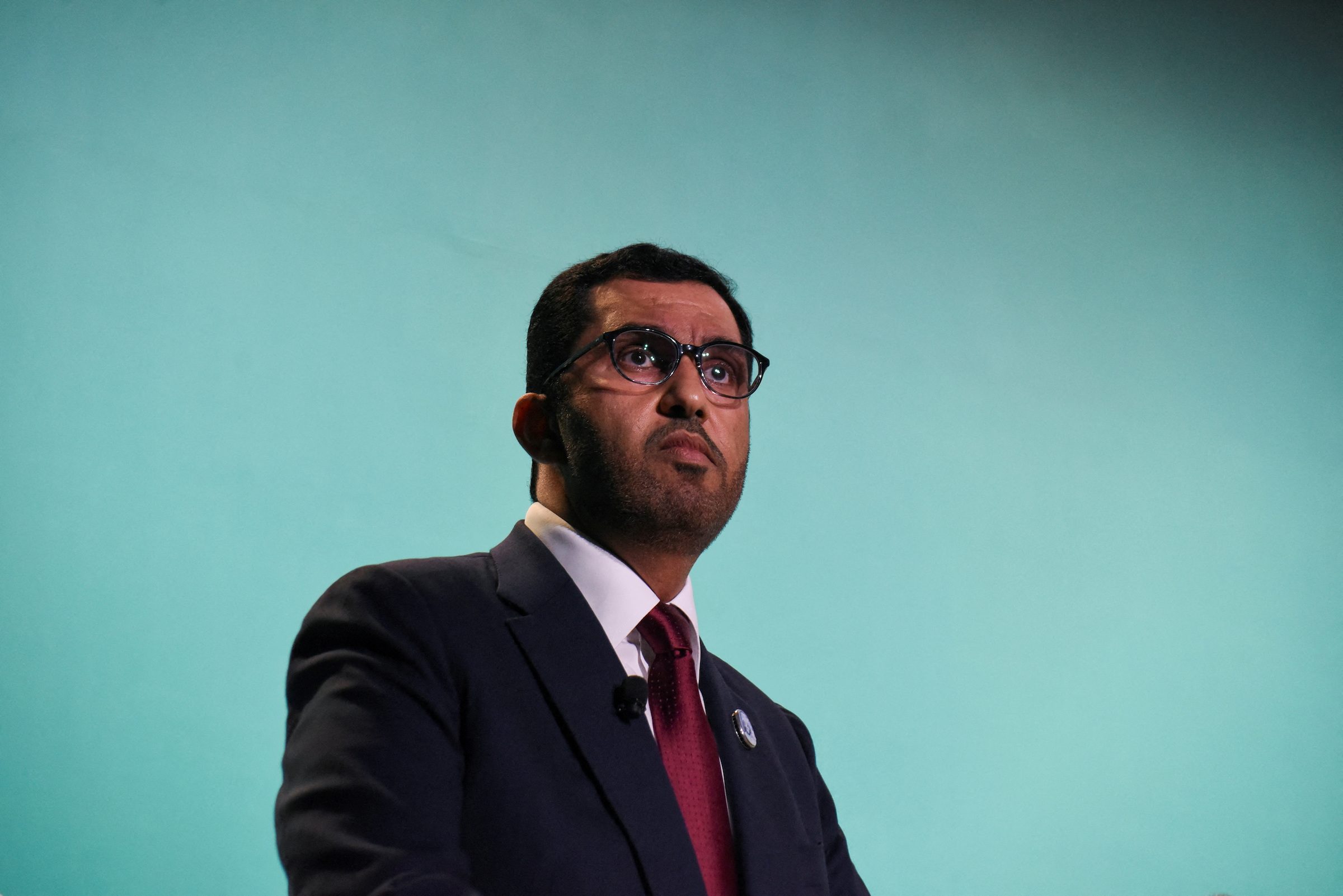
DUBAI, United Arab Emirates – Sultan al-Jaber, the United Arab Emirates oil chief executive and leader of COP28 climate talks, has a formidable reputation for earnestly pursuing results.
His position as leader of state energy giant Abu Dhabi National Oil Company (ADNOC) has alarmed environmental critics concerned over his commitment to maintaining a role for fossil fuels in the energy transition, but his supporters say he has an ability to get things done and straddle divides that will deliver climate action.
When marathon deliberations in Egypt’s picturesque city of Aswan in October struggled to reach an agreement on a fund to help countries recover from damage caused by climate change, Jaber leapt in.
In a virtual intervention, he told the 24-member UN committee debating the fund that billions of lives depended on getting a deal.
Jaber’s message to the delegates made very clear he would not accept failure.
“You could say that he used the notion of the hard deadline to help bang heads,” Avinash Persaud, negotiator for Barbados, who was a member of the technical committee and present at the meeting, told Reuters.
The stakes were high. Climate funding has caused bitter divisions between developed countries held largely responsible for global warming and poorer countries that are the most vulnerable to its consequences.
Another failure to agree on what is known as the “loss and damage” fund could derail discussions at COP28, which takes place from November 30 to December 12 in Dubai. After a year of extreme heat, droughts, wildfires, and floods, the UN talks will be the first global assessment of progress since the landmark Paris Agreement in 2015.
The October negotiations were supposedly the last chance to reach agreement on the fund, but a fifth extraordinary gathering took place in Abu Dhabi in November that agreed to make the World Bank the fund’s interim home and encourage all countries to contribute.
The UAE is among a handful of high per-capita income countries that are not obliged to contribute to UN climate funds, but face pressure from European states to do so.
Oil riches and beyond
The UAE is a senior member of the Organization of the Petroleum Exporting Countries (OPEC) and its wealth is built on oil. It has plans to raise its production capacity to 5 million barrels per day by 2027.
Jaber, born in 1973 in Umm al Quwain, one of the lesser known emirates, stands out in the UAE for the number of high positions he holds.
Nicknamed Dr. Sultan, he has a PhD in business and economics from Britain’s Coventry University. He also studied in the United States.
In 2006, he was put in charge of Masdar, the UAE’s renewable energy vehicle, and set off on a global fact-finding mission to assess obstacles and opportunities.
As part of the tour, he met Olafur Ragnar Grimsson, who was then president of Iceland, which, drawing on ample geothermal reserves, has managed to more than meet its energy needs through renewable sources.
“He told me he had this vision that he wanted to make Abu Dhabi a center for a renewable energy transformation,” Grimsson told Reuters.
“On the face of it, it was almost an absurd proposition. But there was something in his eyes, and his enthusiasm that made me believe that he was serious.”
Masdar has investments in over 40 countries and is still chaired by Jaber, its founding chief executive officer, who since 2016 has also been the CEO of ADNOC.
No more silos?
Jaber’s travels showed him the need to break down silos that separate various aspects of the renewables industry, such as research, technology, and finance, to get results.
Similarly, as the president of COP28, he has backed an inclusive approach, so oil and gas representatives, including OPEC Secretary General Haitham Al Ghais, will be in Dubai.
Without the inclusion of fossil fuel leaders in the climate conversation, Jaber says there can be no orderly transition to a low-carbon economy.
The approach has alarmed climate activists.
Greta Thunberg called Jaber’s appointment as president-designate to COP28 in January “completely ridiculous,” while former US vice president Al Gore, a longtime climate activist, has said fossil fuel interests have taken over the UN climate process.
Houston, we have a problem
Those who have worked with Jaber have said he is as a realist who looks towards scientific data and factual evidence to guide his decision-making.
Jaber says his experience as an oil boss adds to his ability to leverage solutions.
Two months after being appointed COP28 leader, Jaber in March flew to Houston to the CERAWeek energy industry event where he urged the world’s fossil fuel bosses to join the fight against climate change, borrowing a famous line from a US astronaut aboard a damaged spacecraft during the Apollo 13 mission in 1970.
“Houston, we have a problem,” Jaber told the nearly 1,000 attendees, urging the industry to bring emissions under control.
He has since worked to make more than 20 companies across the oil and gas sector and heavy industry agree to commit to curb emissions at COP28, after convening more than 60 top executives from the oil and gas, cement, aluminum, and other heavy industries in Abu Dhabi this October.
A final deal on the commitment is expected to be announced at COP28.
Bridging the divide
Success at COP28, whose first task will be to formally make Jaber its president, will depend on achieving collaboration between the world’ biggest carbon emitters China and the United States.
Jaber has devoted himself to shuttle diplomacy between the two and drew on a personal rapport with both US climate envoy John Kerry and Chinese counterpart Xie Zhenhua to help align around significant methane emission reduction commitments.
The even bigger issue of ending the divisions over the continued role of hydrocarbons, however, has yet to be solved.
Countries, such as the UAE, say coal, oil, and natural gas must have a continued role, combined with technology to capture their emissions until new energy systems can sustain the world’s needs.
On the other side of the divide are countries that say phasing out fossil fuel is the only way to achieve the Paris goal of limiting global warming to well below 2°C (3.6°F), while aiming for a cap of 1.5°C.
Jaber has maintained a phasedown of fossil fuels is inevitable and essential, but as part of a comprehensive, thought-out energy transition plan that takes into account the circumstances of each country and region.
“One size fits all will not work so we need to be flexible and agile,” he told Reuters in October.
“We should raise ambition and keep 1.5 as our north star so no one loses sight.” – Rappler.com
Add a comment
How does this make you feel?





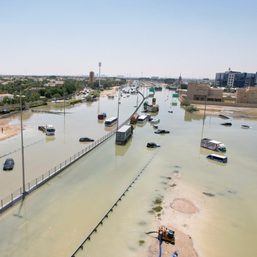
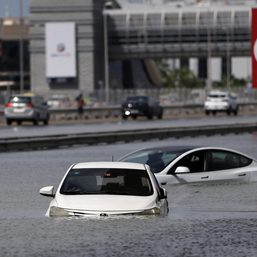
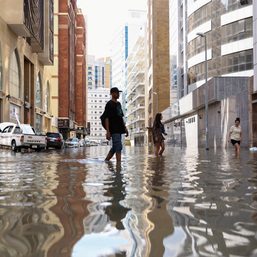
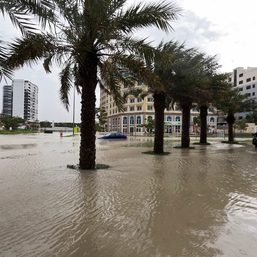

There are no comments yet. Add your comment to start the conversation.